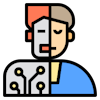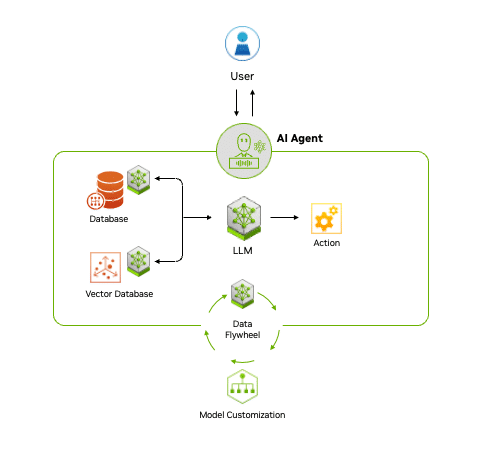 Specialized AI Agents
Specialized AI Agents
Are designed to perform specific AI tasks or functions within particular domains
These agents use advanced AI capabilities to autonomously handle complex, multi-step problems in their areas of expertise. These specialized agents can be customized and integrated into various applications, allowing businesses and individuals to automate complex tasks, improve efficiency, and focus on higher-level strategic work.
The agents are narrow AI, and are designed to function within a well-defined context. They are different from general AI, which is designed to handle a broad range of tasks across various domains. AI agents can help with a variety of tasks, including expense reporting, project management, facilitating meetings, supply chain management, and more.
Examples of AI Agents
Here are some examples of specialized AI agents:
- Email Assistants: AI agents that can manage emails, helping to organize, prioritize, and respond to messages.
- Calendar Agents: These agents can manage schedules, set reminders, and plan events autonomously.
- Web Search Agents: Specialized in conducting web searches to gather specific information for users.
- Home Assistant Controllers: AI agents designed to manage and control smart home devices and systems.
- IT Help Desk Agents: These can open and close tickets, provide technical support, and solve IT-related issues using context and memory.
- Financial Agents: Capable of reconciling financial statements and assisting with closing the books.
- Supply Chain Agents: These can review and approve customer returns or analyze shipping invoices to prevent costly errors.
- Field Technician Support Agents: Agents that can provide step-by-step support instructions to field technicians by researching product information.

"AI agents are not only a way to get more value for people but are going to be a paradigm shift in terms of how work gets done"
Types of AI Agents
There are several types of specialized AI agents:
- Goal-based agents: These agents consider future consequences to achieve goals. They are suitable for complex decision-making tasks, such as robotics, planning systems, and advanced game AI.
- Utility-based agents: These agents optimize performance based on utility function. They are used in recommendation systems, financial trading systems, and complex optimization problems.
- Learning agents: These agents improve performance by learning from experiences. They are used in adaptive game AI, personalized healthcare systems, fraud detection, and autonomous vehicles.
- Simple reflex agents: These agents handle basic reactions, such as a thermostat that turns on the heating system at a set time every night.
- Model-based reflex agents: These agents are used in model-based tasks, like a robot vacuum cleaner.
 Links
Links
blogs.nvidia.com/blog/ai-decoded-agents-anythingllm-rtx-ai/
news.microsoft.com/source/features/ai/ai-agents-what-they-are-and-how-theyll-change-the-way-we-work/
ibm.com/think/topics/ai-agents
aws.amazon.com/what-is/ai-agents/
salesforce.com/agentforce/build-ai-agent/
sap.com/products/artificial-intelligence/ai-agents.html